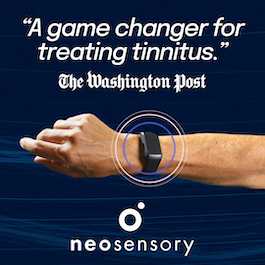|
www.HealthyHearing.com |
Alerting devices
By Susanne Jones, BC-HIS, customer support manager, Healthy Hearing Last updated on: October 20th, 2023 Hearing loss can be a safety issue, but these special alerting devices are available to wake you, indicate a visitor at the door or warn you of an emergency. Learn about the types of alerting devices for people with hearing loss. Before modern technology, people with hearing loss sometimes had to rely on others for their safety and connectivity to the rest of the world. Thankfully, as technology has rapidly evolved, so too have devices that help people with hearing loss stay safe and connected, with more independence. Today there are assistive listening devices, hearing aids, FM systems, and captioning and amplification devices that help people communicate with others, hear the sounds of everyday life and enjoy entertainment when they otherwise would have a difficult time due to hearing loss and hearing impairments. Additionally, alarms and specialized alerts keep people safe and connected. People with hearing loss or deafness also can wear medical ID bracelets to alert medical professionals in the case of an emergency. Alarms and alerting devices.jpg)
mesh WIFI system for constant system monitoring. Alerting and alarm devices designed for people who are hearing impaired keep you connected and safe every day and in emergency situations. They mostly use one or more of these types of signals:
In general, alerting devices include specialized alarm clocks, smoke alarms and carbon monoxide monitors, doorbell and phone signalers, baby cry alerts, and weather alerts. Many of these are intended to be used when a person is asleep and not wearing their hearing aid. As smartphone technology improves, many of these functions are possible via your phone. For example, if you have a doorbell camera, you can turn on vibrating phone notifications when the camera senses motion or someone rings the bell. All-in-one alerting devicesRecent developments in alerting devices include affordable all-in-one alerting systems which use the home’s WIFI system. One example is the Sonic Alert HomeAware II, which act as an alarm clock, caller ID and smartphone charger while monitoring your smoke alarm, CO2 alarm, home security system and weather radio. If concerns arise in those areas, it uses strobing lights, vibration and loud audio signals to alert the person with hearing loss. It can also send text messages to your selected contacts outside the house when the system alerts are generated. Alarm clocks for the hearing impairedHearing a standard alarm clock can be a challenge for people with hearing loss. Specially-designed alarm clocks for people who have hearing loss come in many forms, including those that have built-in strobe lights or bed-shakers and those that have an outlet where you can plug in a vibrating alert, or a lamp to wake you up each morning. Smoke, fire and carbon monoxide detectorsFortunately, there are smoke alarms made for the hard of hearing. Some of these devices are sold separately while others are part of a combination fire and carbon monoxide detection system. Many have extra loud alarms as well as flashing strobe lights, depending on your need. There are also bed-vibrating fire alarms that have a component that goes under your pillow or mattress—depending on its strength—and alerts you to a fire by shaking you awake. There are also alerting devices with technology that detects the pitch of your existing smoke detector and respond with a much louder, lower-pitched sound that is more likely to wake you. Some devices shake you awake while the digital display turns orange and says "FIRE." Doorbell signalersDoorbell signalers work with or without an existing doorbell to make sure you know when someone is at the door. They may come with security signalers that alert you if a door or window is opened in your home. Door signalers can range from a simple flashing strobe light to a system connected to your phone or one with its very own receiver. There are some that you keep in a central location in your home and they alert you, through a message and/or a flashing light when you're receiving a phone call or someone is ringing the doorbell. Phone signalersPhone signalers either plug directly into the outlet and phone line or are attached to the side of a phone to pick up the sound directly. However, with the prevalence of cell phones today, there are more unique, discreet and advanced options on the market than ever before. Newest phone technologyMost recently, tech companies have come up with discreet, modern and even high-style bracelets and smartwatches that alert people when their cell phone is ringing. Even people without hearing loss can benefit from this, such as when your cell phone is on silent or tucked away in a purse or bag, but people with hearing loss can especially benefit since they often don't hear their phones ringing.
Baby cry signalersRegular baby monitors often do not generate enough sound for people with hearing loss to determine if their babies are crying. But manufacturers now make transmitters and receivers specifically meant to detect a baby's crying and transmit it to a central alert system. Weather alertsSometimes, people with hearing loss do not know about a dangerous storm because they cannot hear the rumble of thunder or crack of lightning, particularly if they have profound hearing loss or reverse-slope hearing loss. Additionally, some people don't watch TV or listen to the radio. In these cases, weather alerts can give warning about impending storms or other disastrous weather situations on the horizon. A weather alert radio can be used by itself or with other alerting accessories, such as strobes or bed-shakers, depending on your needs and preferences. Take it on the roadIf you use alerting devices at home, consider taking them with you when you travel. Devices that give an alert when smoke alarms go off can be used in hotels and when staying with friends or family. Also keep in mind these tips for driving or flying with hearing aids. Where do I get alerting devices?Common distributors, manufacturers and brands of alerting devices for people with hearing loss include Hear World USA, Sonic Alert, Clarity Products, Clear Sounds, Diglo, Maxi Aids, Hear More, and Teltex, Inc. When possible, it can be helpful to call and speak to someone to explain your needs so they can direct you to the right product. You can buy many of these manufacturer's products online or in some stores. Your hearing care provider also can likely recommend devices that will work well for your needs. In some cases, you may be eligible for free or discounted devices via your state's disability services. To see a list of state resources for people who are hard of hearing, click your state's name on our hearing clinic page. Additionally, veterans who qualify for VA hearing care may be eligible for low-cost or free alerting devices. Susanne Jones, BC-HIS, customer support manager, Healthy Hearing
You are reading about: Related topics
More information about hearing loss, hearing aids, hearing aid brands and tinnitus. Featured clinics near me
Hearing Health Solutions from Ohio ENT - Columbus
Earzlink Hearing Care - Reynoldsburg Find a clinicWe have more hearing clinic reviews than any other site! Related contentThe Healthy Hearing Report |
|
www.HealthyHearing.com |
Alerting devices
By Susanne Jones, BC-HIS, customer support manager, Healthy Hearing Last updated on: October 20th, 2023 Hearing loss can be a safety issue, but these special alerting devices are available to wake you, indicate a visitor at the door or warn you of an emergency. Learn about the types of alerting devices for people with hearing loss. |



 Susanne Jones holds a bachelor’s degree in communications from Bradley University and is board certified in hearing instrument sciences. Susanne enjoys helping hearing care practitioners across the country provide quality care to people with hearing loss.
Susanne Jones holds a bachelor’s degree in communications from Bradley University and is board certified in hearing instrument sciences. Susanne enjoys helping hearing care practitioners across the country provide quality care to people with hearing loss.